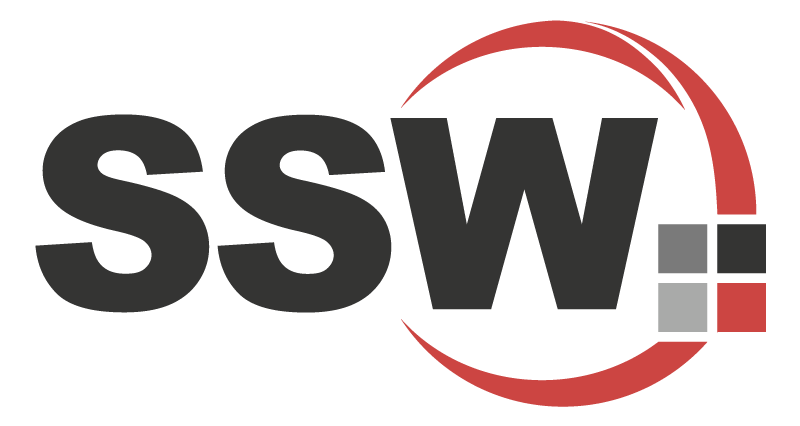Understanding the SSW (Specified Skilled Worker) Visa: Full Form, Application Process, Requirements, and Facts
Introduction
The SSW (Specified Skilled Worker) visa is a special work visa introduced by the Japanese government in April 2019 as part of its effort to address labor shortages across various industries in Japan. It aims to allow foreign workers with a specific set of skills to work in Japan for a limited period, helping to fill gaps in sectors like nursing, construction, agriculture, hospitality, and more. The introduction of the SSW visa was a significant policy shift for Japan, which has traditionally been known for its strict immigration policies. This article will explore the full form of the SSW visa, the visa application process, processing time, requirements, and its meaning in the Japanese language, along with some key facts and figures.
What is the Full Form of SSW Visa?
The full form of SSW is Specified Skilled Worker visa. It is designed to bring foreign labor into Japan in order to support specific industries facing labor shortages. There are two main categories of the SSW visa: SSW (i) and SSW (ii), each corresponding to different levels of skill and qualification. The SSW visa program allows foreign workers to apply for jobs in Japan, provided they meet certain requirements related to their skills, language proficiency, and experience.
SSW (i) and SSW (ii) Visas
- SSW (i): The SSW (i) visa is for workers who have the necessary skills in specific sectors but need to demonstrate their proficiency in Japanese language and industry-specific skills through a skills test.
- SSW (ii): The SSW (ii) visa is for highly skilled workers who have passed a more advanced skills test and have the potential to stay longer in Japan with the possibility of changing to permanent residency.
The program is designed to allow foreign workers to work in Japan for a renewable period of time, helping businesses meet their demand for labor. The visa also benefits workers, providing them with the opportunity to live and work in Japan while gaining valuable international experience.
How to Apply for the SSW Visa?
The visa application process for the SSW visa involves several steps, which must be completed in a specific order. It is important to ensure that all necessary documents and requirements are met before submitting the application to avoid any delays in the process. The following is a general overview of the application procedure for the SSW visa.
1. Job Offer and Employment Contract
Before applying for the SSW visa, an applicant must first secure a job offer from a company or employer in Japan. The applicant must be offered employment in a specific industry that is eligible for the SSW visa. Some of the eligible sectors for the SSW (i) and SSW (ii) visas include:
- Construction
- Agriculture
- Hospitality and food service
- Nursing and healthcare
- Manufacturing
- Shipbuilding
- Information technology
Once an applicant receives an official job offer, they will need to sign an employment contract with the Japanese employer. This contract will be required when applying for the visa.
2. Language Proficiency and Skills Testing
For the SSW (i) visa, applicants must demonstrate proficiency in the Japanese language by passing a Japanese Language Proficiency Test (JLPT) or another recognized test, depending on the job category. The level of proficiency required may vary based on the industry and position, but typically, a level of N4 or N3 (intermediate level) of the JLPT is required.
In addition to the language proficiency test, applicants may also need to pass a skills test relevant to their job industry. This ensures that the applicant has the necessary technical skills for the position in which they will work.
For the SSW (ii) visa, the skill requirements are higher, and applicants must meet more stringent criteria. This visa is for skilled professionals who have already acquired expertise in the specific sector.
3. Submission of Documents
The next step involves submitting the necessary documents to apply for the visa. These documents typically include:
- A passport that is valid for at least six months.
- The employment contract with the Japanese company.
- Proof of Japanese language proficiency (such as JLPT certification).
- Proof of relevant work experience or qualifications related to the job.
- A medical certificate to prove the applicant is in good health.
The application must be submitted to the Japanese embassy or consulate in the applicant’s home country, or directly to the Immigration Services Agency of Japan, depending on the location and circumstances.
4. Visa Approval
Once the application has been submitted, it will undergo a review process. The authorities will verify the information and documents provided and assess the applicant’s eligibility for the SSW visa. The review process can take anywhere from one to three months, depending on the complexity of the application and the processing times at the embassy or immigration office.
5. Visa Issuance
If the application is approved, the applicant will be issued the SSW visa. The length of stay for the SSW visa can vary, with SSW (i) visa holders generally receiving a one-year or two-year visa. However, the visa can be renewed depending on the applicant’s performance and the continued need for foreign workers in their respective industries.
SSW Visa Processing Time
The processing time for the SSW visa can vary based on various factors such as the applicant’s nationality, the embassy or consulate’s workload, and the complexity of the application. On average, the processing time is around one to three months.
However, there may be delays if there are issues with documentation or if additional information is needed. Applicants are encouraged to apply well in advance to ensure there is ample time for processing.
Visa Requirements for the SSW Visa
To qualify for an SSW visa, there are certain requirements that applicants must meet:
- Job Offer: Applicants must have a valid job offer from a Japanese employer in a sector eligible for the SSW visa.
- Skills and Experience: The applicant must have the necessary skills and work experience related to the job they are applying for. In some cases, the applicant may need to pass a skills test.
- Language Proficiency: Applicants must demonstrate proficiency in the Japanese language by passing a recognized test such as the JLPT, depending on the specific job category.
- Age: Applicants must typically be between the ages of 18 and 45 to be eligible for the visa, though exceptions may apply in certain cases.
- Health: Applicants must be in good health and provide a medical certificate to prove this.
- Criminal Record: Applicants should not have a criminal record, as this can affect their eligibility for a work visa.
- Financial Stability: The applicant should have the financial means to support themselves and their family during their stay in Japan.
SSW (ii) Visa Meaning in Japanese
The term SSW (ii) refers to the more advanced category of the Specified Skilled Worker visa, where the worker possesses higher-level skills and qualifications. This visa is typically used by workers in industries that require advanced expertise and experience.
In Japanese, the term “SSW (ii)” is written as 特定技能(ii), and it refers to a visa that allows workers to stay for longer periods and provides an option for permanent residency, based on their contributions to the Japanese workforce.
Facts and Figures About the SSW Visa
- The SSW visa was introduced in 2019 to tackle the shortage of skilled workers in various sectors of the Japanese economy.
- As of 2020, Japan had aimed to accept up to 345,000 foreign workers through the SSW visa program by 2025.
- The SSW visa targets industries such as construction, nursing, hospitality, agriculture, and manufacturing, where there is a significant demand for labor.
- In 2020, approximately 2,000 workers had entered Japan under the SSW (i) visa category, with that number expected to increase significantly in subsequent years.
- The SSW (ii) visa holders, due to their specialized skills, are expected to have the possibility of staying in Japan longer, with the option to apply for permanent residency after a certain period.
- Japan’s population is aging rapidly, with a significant portion of its labor force nearing retirement age. This has resulted in the country’s increasing reliance on foreign labor to fill the labor gap in key industries.
Conclusion
The SSW visa has played a crucial role in Japan’s efforts to address its labor shortages in various industries. With the introduction of the SSW visa, foreign workers are now able to contribute to sectors such as construction, agriculture, and healthcare while benefiting from the opportunity to live and work in Japan. While the process of obtaining the SSW visa can be complex, it offers many advantages to those who meet the necessary requirements and successfully secure a job offer in Japan. By fostering the influx of skilled foreign workers, Japan aims to ensure its industries remain competitive and sustainable in an ever-changing global economy.






